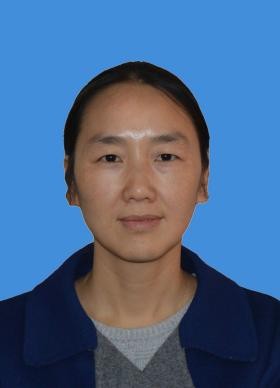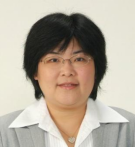KEYNOTE SPEECH
 |
Data-driven
Evolutionary Optimization Prof. Chaoli Sun Taiyuan University of Science and Technology China |
Abstract:
Numerous real-world optimization tasks involve performance evaluations that rely on time-consuming or costly physical experiments or high-fidelity simulations,
collectively referred to as expensive optimization problems. Data-driven optimization algorithms leverage techniques from data science and machine learning to assist in optimizing such problems.
This talk will first introduce the fundamental concepts and taxonomy of data-driven evolutionary optimization.
Subsequently, it will explore key challenges associated with applying data-driven algorithms to large-scale expensive optimization problems,
as well as to expensive multi-/many-objective scenarios. Finally, applications of data-driven evolutionary optimization in the field of transportation will be discussed.
Biography:
Chaoli Sun is a Professor in the School of Computer Science and Technology at Taiyuan University of Science and Technology,
Taiyuan, China. She is a Senior Member of the IEEE and a Distinguished Member of the China Computer Federation (CCF). Prof.
Sun currently serves as Chair of the Intelligent Systems Applications Technical Committee (2024–2025) of the IEEE Computational Intelligence Society.
She is an Associate Editor of IEEE Transactions on Evolutionary Computation and IEEE Transactions on Artificial Intelligence,
and serves on the editorial boards of Engineering Applications of Artificial Intelligence, Complex & Intelligent Systems,
and Memetic Computing. She previously served as Chair of the Task Force on Data-Driven Evolutionary Optimization of Expensive Problems (2016–2020).
Her current research interests include computational intelligence, trusted computing, and self-organizing robotic systems.
 |
AI and Image Processing for Smart Ecosystems:
Enabling Connected Futures Across Transportation, Agriculture, and Healthcare Prof. Thi Thi Zin University of Miyazaki Japan |
Abstract:
The convergence of Artificial Intelligence (AI) and cutting-edge Image Processing is ushering in a transformative era for smart ecosystems, delivering unparalleled precision and efficiency across diverse sectors. This keynote explores the evolution and synergistic integration of AI technologies, tracing their impact from foundational applications in Intelligent Transportation Systems (ITS) to advanced solutions in precision agriculture and health monitoring.
Initially, AI’s role in ITS revolutionized traffic safety and management through automated detection of road signs, pedestrians, and environmental cues. Building on this legacy, we delve into how real-time AI-driven image analytics are now empowering smart dairy farming and comprehensive livestock health monitoring. These applications facilitate predictive health management, optimize operational workflows, and foster sustainable, intelligent farm ecosystems.
Furthermore, this presentation highlights crucial interdisciplinary collaborations in healthcare. We examine AI-enabled monitoring solutions tailored for elderly care and infant health, which leverage sensor fusion and intelligent data interpretation. These systems are pivotal in enhancing patient safety, improving quality of life, and enabling personalized care delivery.
Ultimately, this keynote underscores the profound potential of AI-driven innovations to create interconnected, intelligent environments. By seamlessly bridging smart transportation, precision agriculture, and human healthcare, we present a holistic and actionable vision for the development of future smart communities.
Biography:
Dr. Thi Thi Zin is the First Woman Professor in the Faculty of Engineering, University of Miyazaki, Japan. She was born in Yangon, Myanmar. She received her Bachelor Degree of Science specializing in Mathematics from Yangon University in 1995. She earned her first Master Degree of Information Science from University of Computer Studies, Yangon in 1999. She received her second Master Degree of Engineering (Electrical and Information Engineering) in 2004 from Osaka City University, Japan. She received her Ph.D. degree in the field of Image Processing in 2007 from Graduate School of Engineering, Osaka City University, Japan.
From 2007 to 2009, she was awarded a Postdoctoral Research Fellow of Japan Society for the Promotion of Science (JSPS). After the JSPS, she served as a Specially Appointed Researcher and Specially Appointed Assistant Professor in the University of Tokyo and Osaka City University until 2013. Then, she was appointed as an Associate Professor in the Faculty of Engineering, University of Miyazaki. In 2016, she was promoted to the Full Professorship in Faculty of Engineering, University of Miyazaki, Japan. Her research interests include Human Behavior Understanding, Intelligent Transportation systems, Cow Behavior Analysis, Health Care Monitoring Systems and Image Recognition. She is a member of IEEE. Dr. Thi Thi Zin has published more than 125 research papers in reputable International Journals including IEEE Access, IEEE Transactions on Consumer Electronic, Scientific Reports and she presented more than 150 research papers in International Conferences.
Dr. Thi Thi Zin has served in multiple leadership roles across IEEE conferences. She was Conference Chair for IEEE-GCCE 2020 and IEEE-LifeTech 2022, and held organizing roles for IEEE SMC 2018 and ICGEC (2015, 2024). From 2021 to 2023, she served on the IEEE CTSoc Board of Governors and led the CTSoc Women in Engineering Committee. Her ongoing involvement in WIE reflects her dedication to supporting and mentoring the next generation of engineers.